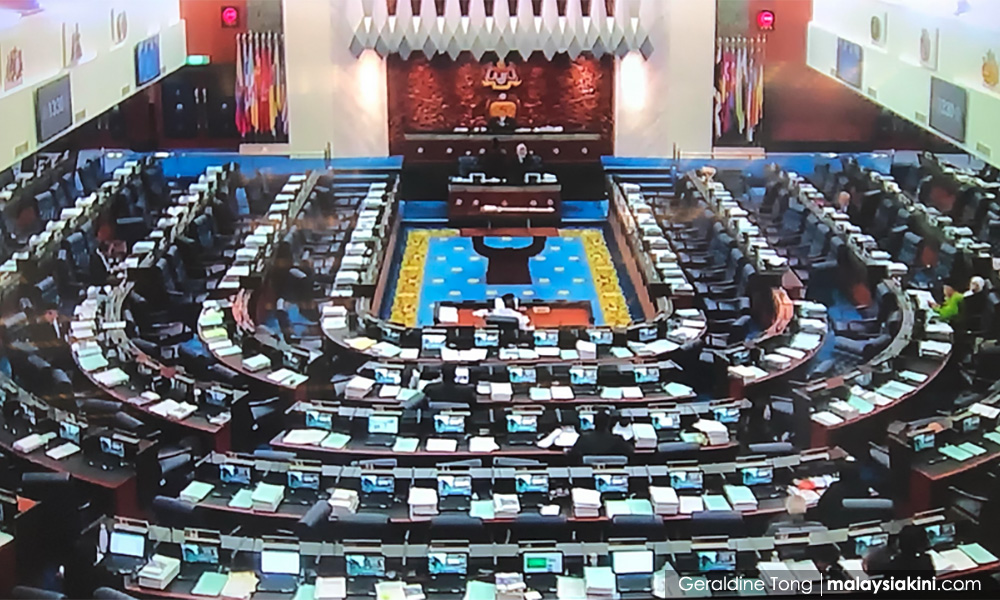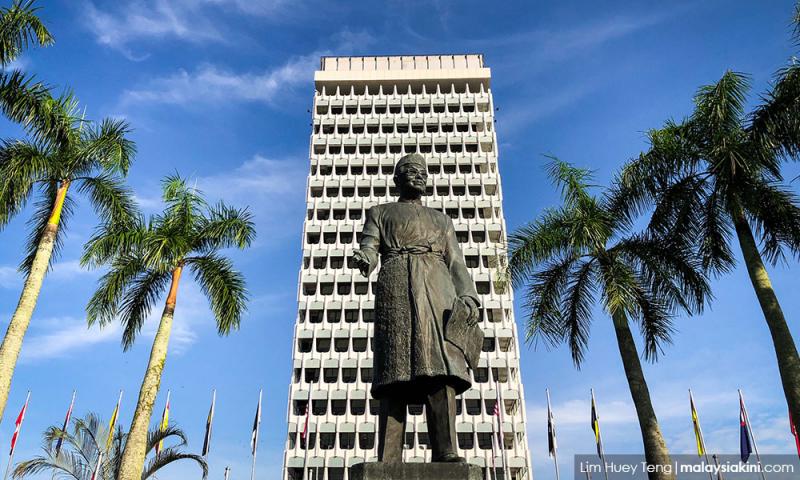COMMENT | Amphibian politicians: Remove MPs who breach oath
COMMENT | In a previous post, I have examined the motivations that underpin defections and two main options to manage this issue - recall elections and anti-party hopping law. In this post, I will examine two further options and give a summary of solutions for all Malaysians to start advocating for.
Option 3: Deliberate breach of MP's oath
I have received a written opinion by advocate and solicitor Puthan Perumal saying that an MP found breaching the oath should be removed from his or her seat in the legislature. This concept hinges on the existence of a legal relationship between the voters and the elected representative.
Firstly, every member of both Houses of Parliament is required, based on Article 59 (1), to take the oath in the form set out in the Sixth Schedule. The key wording in the oath are “will preserve, protect and defend its Constitution”.
The Constitution has the following Articles 113 to 120, which stipulate who has the right to elect a representative and the manner in which the representative gets elected.
Articles 113 and 114 stipulate how an elected representative gets elected. Puthan argues that the MP will have to preserve, protect and defend these elements in the Constitution.
Article 119 (1) stipulates who has the right to elect a representative. Every citizen with qualifying factors is entitled to vote for their representative, both at the state legislative assembly and Parliament. Similarly, the MP will have to preserve, protect and defend this element in the Constitution.
Reading together with all the Articles from 113 to 120, both future elected representatives and the voters are subjected to these articles. In essence, “the proposed/future MP makes thousands of legally binding obligations to thousands of citizens who cast their votes in his or her favour and subsequently to his or her success”.
Puthan argued that should the MPs deliberately fail to honour binding obligations to the citizens (aside from their death or resignation), he or she has deliberately failed to “preserve, protect and defend its constitution.” This amounts to a deliberate breach of the MP’s oath and the MP should vacate his or her seat.

Moreover, Puthan said there is a distinction between the right to stand as a candidate and the right to remain as an elected representative. Puthan referred to a judicial case in India where the acting chief justice stated: “For there is no fundamental right in any person to continue as a member of the legislature. The right to stand as a candidate in an election and the right to continue as a member of the legislature after such election is a statutory right that can be validly and reasonably taken away by a statute.”
Furthermore, Puthan said the 1992 case involving former assemblyperson Nordin Salleh, which asserted principles of freedom of association, should be revisited. The argument presented is that an elected representative being part of the legislature will stand so long as no breach of oath occurs. Should this line of argument work, the need for an anti-party hopping law will not be there.
Finally, Puthan argued that any citizen affected by the breach of oath should be able to present his or her case to the court “and the issue of locus standi would not arise”.
This approach is an innovative and robust method which shows the firm association between an elected representative and the citizen at any given election. I recommend the nomination form to carry the oath of the State Legislative Assembly or Parliament to remind future representatives to honour the constitutional principles.
As the approach advocated by Puthan will require judicial interpretation, this approach remains untested and may not guarantee holding defecting politicians to account.
Option 4: Getting it right on nomination day
I advocate minor amendments to the nomination forms and the Constitution to define the clear association between the candidate and the party being represented (with party name stated or being declared as an independent).

Firstly, the definition of a political party must be inserted in the Conduct of Elections (COE) or in the Constitution. Currently, in the COE, there are articles giving the party the authority to affix a symbol for the candidate for an election.
The returning officer only assigns the party symbol to the candidate when a written authority from the responsible person in the party is given, which authorises the usage of the symbol for the candidate.
Secondly, the nomination form should add a line showing whether the candidate is contesting under a party (ie the name of the political party) or as an independent.
Thirdly, the nomination form is to carry the oath of the State Legislative Assembly or Parliament to remind the importance of the Constitution.
While these amendments will not penalise nor deter a defecting politician, it will strengthen the association between the party, the candidate and the importance of honouring the Constitution.
Should the Constitution contain anti-party hopping law or recall elections, all future candidates are fully aware that their term can be terminated midway, should the need arise.
Moving forward
Having presented the four options, all of them should be considered for future constitutional amendments or court judgments. In terms of constitutional amendments, I propose the following:
- A mandated definition of a political party in the Constitution;
- The nomination form to state the political party that a contesting candidate is associated with. The candidate is to write the name of the political party or state that he or she is running as an independent;
- The insertion of oaths of the State Legislative Assembly/ Parliament in the nomination form;
- Adding an element to Article 10 (2) (c), where party hopping is to be recognised as prejudicial to the public interest;
- Adding an element to Article 50, where a member of either House of Parliament who resigns from the party under which he or she obtained membership to that House shall resign as a member of the House, immediately;
- Repealing Article 48 (6) and the Eighth Schedule (5), which allow the resigned representative the right to contest immediately; and
- Adoption of recall mechanisms within federal and state laws.
In the current circumstances, the only option that can be viably tested will be taking the MP to court due to the deliberate breach of oath. For the longer-term, we must advocate all the necessary amendments above.
Instead of resigning to cynicism, I appeal to the public to study and push for the amendments. Only through sustained pressure will the voters finally get the controls on defecting politicians.
Our politicians may not have the incentive to push for the appropriate solutions. Ultimately, it is the people who need to move from cynicism and cyber-rattling to take the reins of control on our elected politicians.
DANESH PRAKASH CHACKO is Tindak Malaysia’s mapping advisor and research analyst at Jeffrey Sachs Center on Sustainable Development (Sunway University).
The views expressed here are those of the author/contributor and do not necessarily represent the views of Malaysiakini.
RM12.50 / month
- Unlimited access to award-winning journalism
- Comment and share your opinions on all our articles
- Gift interesting stories to your friends
- Tax deductable
